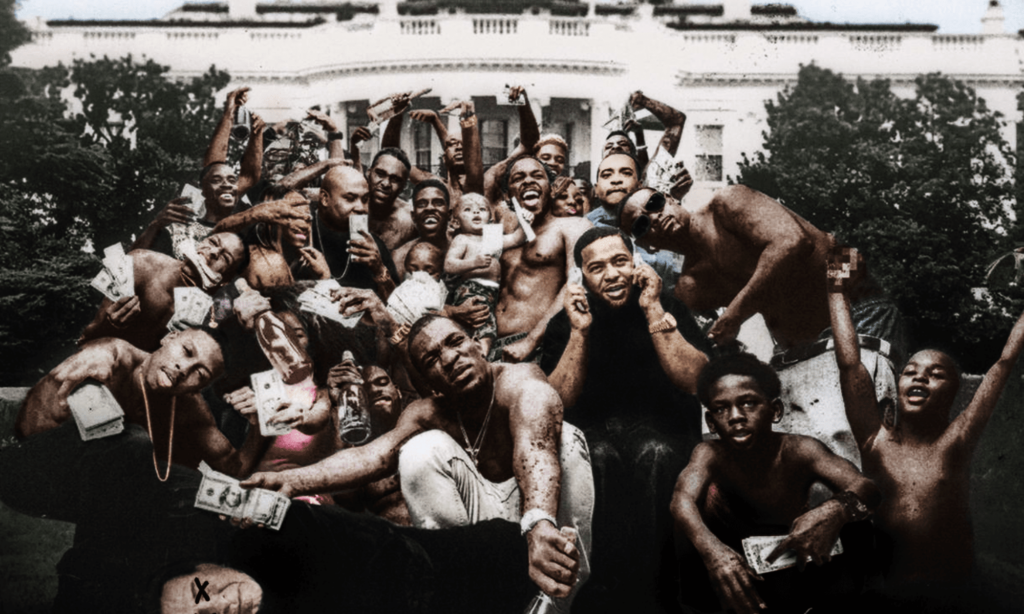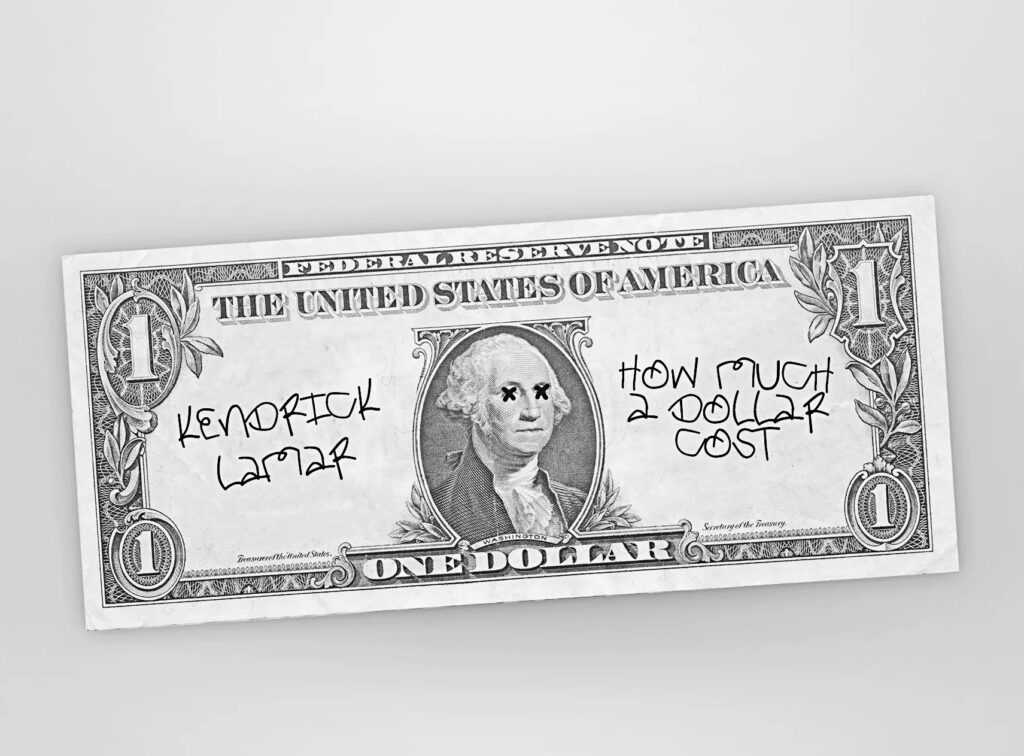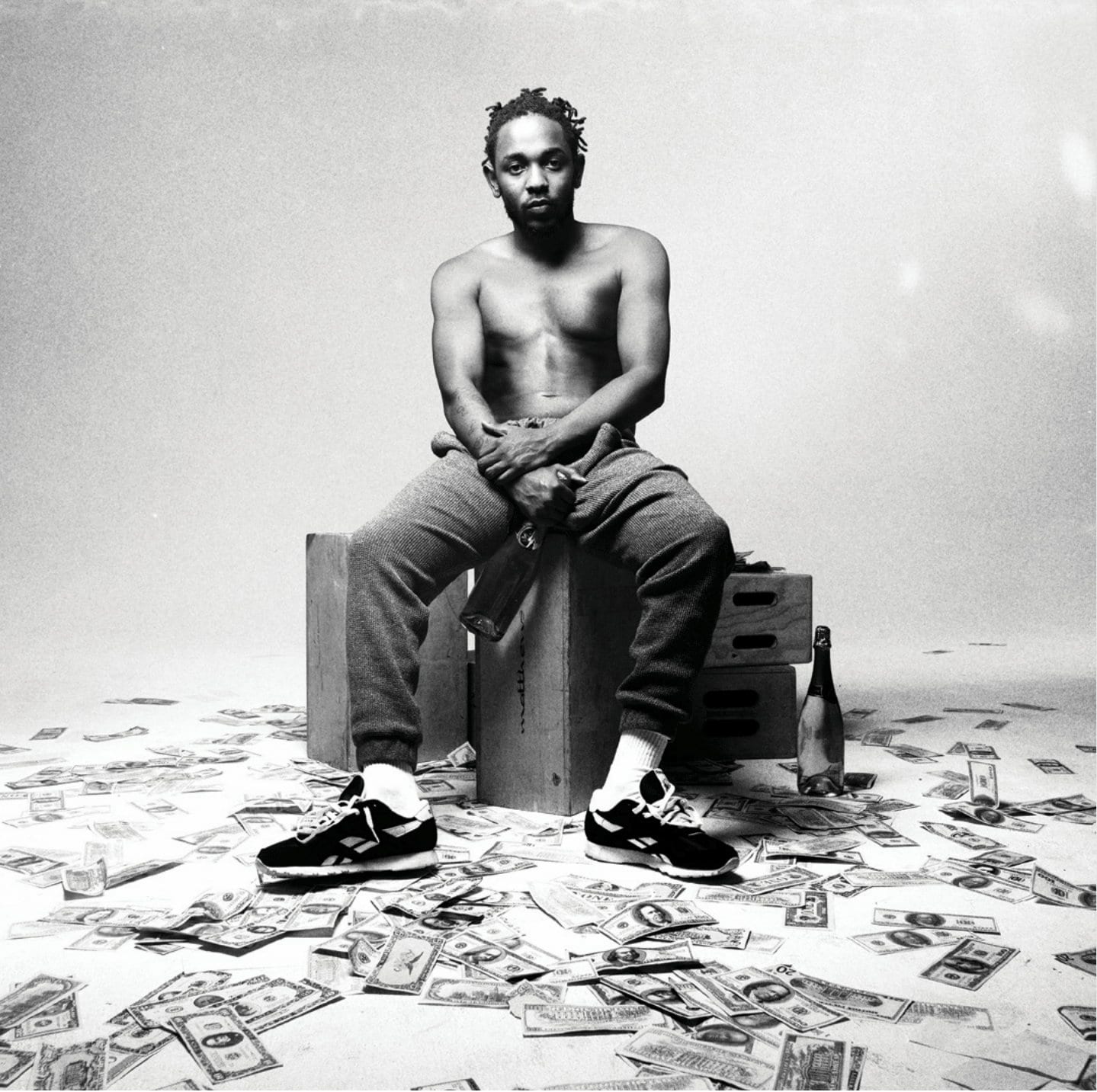Kendrick Lamar Duckworth, better known as Kendrick Lamar, is no stranger to crafting compelling works of art. The Compton-born rapper garnered widespread attention for his clever lyricism and exceptional storytelling abilities following the release of his second studio album, good kid, m.A.A.d city, in 2013. This catapulted him to fame and established him as one of the most awarded rappers, with 17 Grammy wins. Lamar also made history in 2018 as the first non-classical musician to win the Pulitzer Prize for Music.
A Masterpiece in Music- To Pimp A Butterfly

Throughout his illustrious career, Lamar has released six studio albums, all highly acclaimed. Among them, To Pimp a Butterfly (2015) stands out as a masterpiece. Widely regarded as one of the greatest albums of all time, it swept the 2016 Grammys and was arguably snubbed for the “Album of the Year” award. To Pimp a Butterfly is a lyrically dense concept album that tells the story of Lamar, represented as a caterpillar, and how he is exploited by society and record labels. Despite the exploitation, Lamar emerges as a butterfly, using his platform to spread messages of self-awareness and social consciousness. Ultimately, the album emphasizes the importance of staying true to oneself while shedding light on systemic issues.
The Complexity of To Pimp a Butterfly
To Pimp a Butterfly is not an easy listen. Its emotional depth and complex themes require several listens to fully grasp. The 11th track, “How Much A Dollar Cost,” exemplifies everything Lamar is praised for. In his quest for self-discovery, Lamar reflects on a journey to Rwanda, which he references in the 9th track, “Momma.” It is in this context that the events of “How Much A Dollar Cost” unfold.
A Story of Greed and Humility

The song tells a story of greed and humility. At a gas station, Lamar encounters a beggar who asks for spare change. Lamar repeatedly refuses, assuming the man will use the money for drugs. As Lamar prepares to leave, the beggar asks if he has read Exodus 14, urging him to be humble and give. Lamar stands firm, claiming he needs his money and dismissing the beggar as someone who reeks of “grandpa’s medicine.”
A Divine Revelation and Moral Accountability
The beggar then confronts Lamar, telling him his “potential is bittersweet” due to his selfishness. The plot twist comes when the beggar reveals his true identity: “the Messiah, the son of Jehovah, the higher power.” The beggar, revealed to be God, answers the song’s central question—how much does a dollar cost? The price, he says, is “a spot in Heaven,” urging Lamar to “embrace [his] loss.”
Faith in Action
The track concludes with an outro sung by Ronald Isley, expressing Lamar’s guilt: “I washed my hands, I said my grace, what more do you want from me?” This line conveys the tension between simply performing religious rituals and living by their principles. Lamar realizes that faith requires action, not just words.
This beautifully crafted yet somber tale of greed and humility is underscored by a jazzy instrumental, providing a rich, soulful backdrop. Kendrick Lamar’s storytelling shines brightest in this poignant exploration of moral accountability and compassion.

Chaitanya Tuteja is someone who enjoys sharing his thoughts on books, movies, and shows. Based in India, he appreciates exploring different stories and offering honest reflections. When not reflecting on his favorite media, Chaitanya enjoys discovering new ideas and embracing life’s simple moments.


This website, you can access a great variety of slot machines from famous studios.
Users can enjoy classic slots as well as feature-packed games with vivid animation and exciting features.
If you’re just starting out or a casino enthusiast, there’s always a slot to match your mood.
casino slots
All slot machines are instantly accessible round the clock and designed for laptops and mobile devices alike.
You don’t need to install anything, so you can jump into the action right away.
The interface is easy to use, making it quick to browse the collection.
Join the fun, and dive into the thrill of casino games!
На этом сайте вы сможете найти последние новости Краснодара.
Здесь собраны главные новости города, обзоры и оперативная информация.
Следите за развития событий и получайте только проверенные данные.
Если хотите знать, что нового в Краснодаре, читайте наш сайт регулярно!
https://rftimes.ru/
On this platform, you can find a great variety of slot machines from famous studios.
Visitors can experience classic slots as well as feature-packed games with vivid animation and bonus rounds.
Even if you’re new or a seasoned gamer, there’s a game that fits your style.
casino games
All slot machines are available round the clock and compatible with laptops and tablets alike.
All games run in your browser, so you can get started without hassle.
Site navigation is user-friendly, making it simple to explore new games.
Sign up today, and dive into the excitement of spinning reels!
This website, you can access a wide selection of online slots from leading developers.
Players can try out classic slots as well as feature-packed games with stunning graphics and bonus rounds.
Whether you’re a beginner or an experienced player, there’s something for everyone.
money casino
Each title are ready to play 24/7 and compatible with desktop computers and smartphones alike.
No download is required, so you can jump into the action right away.
The interface is user-friendly, making it convenient to find your favorite slot.
Register now, and discover the excitement of spinning reels!